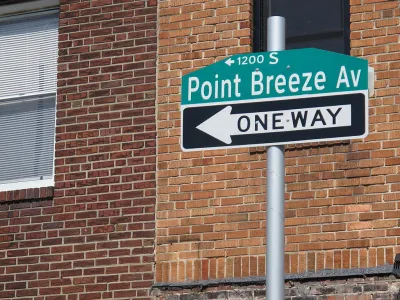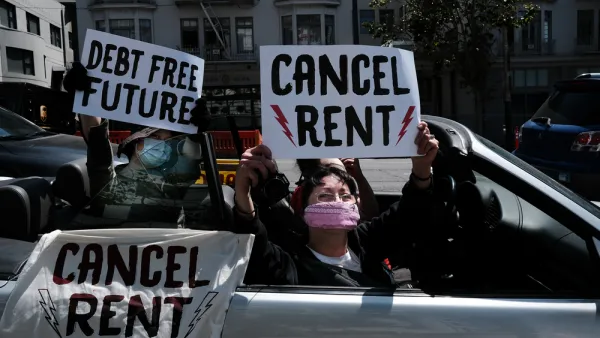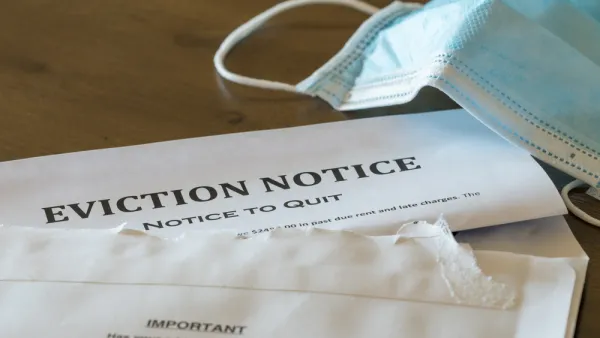In a typical pre-pandemic year, landlords in Philadelphia filed around 20,000 evictions. Last year, landlords filed just 4,500.

In a typical pre-pandemic year, according to research from the Reinvestment Fund, landlords in Philadelphia filed around 20,000 evictions. Between 2010 and 2019, that number shrank a bit, as employment, wages, and access to health insurance all inched upward, according to the group’s analysis. But rather than spiking when Covid-19 shut down the U.S. and put millions of people out of work, the eviction rate dropped. In 2020, landlords filed 4,500 evictions against tenants, according to the Philadelphia Eviction Prevention Project (PEPP), a coalition of legal aid and tenant advocacy groups.
The drop is thanks to a combination of federal moratoria on evictions, emergency rental assistance, and sustained local commitment to programs like eviction diversion, says Rasheedah Phillips, managing attorney for housing policy at Community Legal Services, one of the groups that coordinates PEPP. But Philadelphia is still one of the poorest big cities in America. And as the moratoria begin to expire this year, Phillips says, “The eviction rates are going to go right back up.”
The Philadelphia Eviction Prevention Project was launched at the beginning of 2018 with a $500,000 budget. Among the services the group provides are a tenant hotline for tenants to access legal services, a “lawyer-of-the-day” program providing free legal representation to tenants in eviction court, and frequent tenants’ rights workshops from the Tenant Union Representative Network. In 2019, PEPP had a budget of $2.1 million, and last year, after some budgetary negotiations during the pandemic fallout, it worked with $1.8 million, according to Phillips. This year, according to a report in WHYY, Mayor Jim Kenney’s proposed budget includes $931,000 for the project. (The city’s press office did not respond to questions about the proposal.) Advocates are now fighting to have at least $2.1 million restored for PEPP in the budget negotiation process between the mayor and city council.
FULL STORY: In Philadelphia, the Fight to Fund Eviction Prevention Continues

Analysis: Cybertruck Fatality Rate Far Exceeds That of Ford Pinto
The Tesla Cybertruck was recalled seven times last year.

National Parks Layoffs Will Cause Communities to Lose Billions
Thousands of essential park workers were laid off this week, just before the busy spring break season.

Retro-silient?: America’s First “Eco-burb,” The Woodlands Turns 50
A master-planned community north of Houston offers lessons on green infrastructure and resilient design, but falls short of its founder’s lofty affordability and walkability goals.

Test News Post 1
This is a summary

Analysis: Cybertruck Fatality Rate Far Exceeds That of Ford Pinto
The Tesla Cybertruck was recalled seven times last year.

Test News Headline 46
Test for the image on the front page.
Urban Design for Planners 1: Software Tools
This six-course series explores essential urban design concepts using open source software and equips planners with the tools they need to participate fully in the urban design process.
Planning for Universal Design
Learn the tools for implementing Universal Design in planning regulations.
EMC Planning Group, Inc.
Planetizen
Planetizen
Mpact (formerly Rail~Volution)
Great Falls Development Authority, Inc.
HUDs Office of Policy Development and Research
NYU Wagner Graduate School of Public Service



























